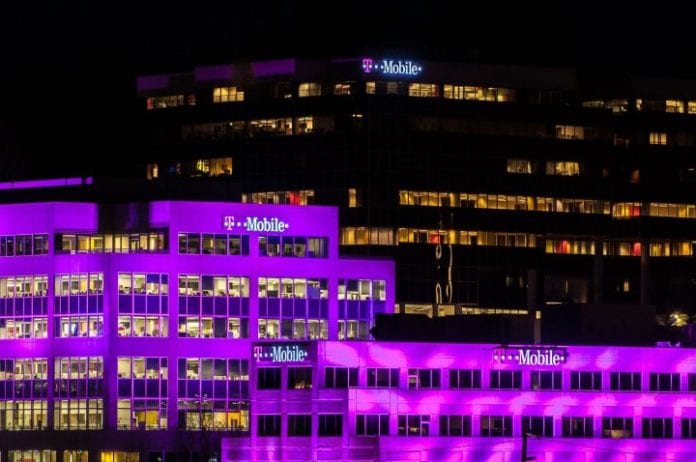Samsung is set to join T-Mobile 5G plans, tapping into the 28 GHz spectrum band and beamforming technology beginning later this year
LAS VEGAS – T-Mobile US’ “5G” plans continue to gain momentum, with the carrier announcing plans to work with Samsung later this year to demonstrate technology advances using spectrum in the 28 GHz band.
The collaboration is set to include both lab work and field trials encapsulating “real-world mobile use cases and applications.” Initial testing set for later this year is to include mobility in an outdoor environment using T-Mobile US’ 28 GHz spectrum and Samsung’s proof-of-concept system, which is enabled with beamforming technology. The work is then set to include trials using a pre-commercial 28 GHz system early next year.
“We are excited to work with Samsung to see how we can bring to life key attributes of emerging 5G technology, including extreme speed, low latency and massive connectivity,” said T-Mobile US CTO Neville Ray, in a statement. “Our collaboration with Samsung’s networks technology will enable us to enhance 5G development and availability.”
T-Mobile US earlier this year announced plans with Nokia and Ericsson to trial technology using the 28 GHz band, with Ericsson filing a request with the Federal Communications Commission to tap the 14.7-15.5 GHz bands to conduct trials near T-Mobile US’ headquarters in Bellevue, Washington.
Samsung recently worked with Verizon Wireless on outdoor 5G trials using the 28 GHz band at the carrier’s Basking Ridge, New Jersey, facility. The trial was said to deliver fixed and mobile wireless indoors, outdoors and in varying line-of-sight conditions at multigigabit speeds.
The move comes on the heels of the FCC moving to free up millimeter wave spectrum resources to support 5G services as part of its Spectrum Frontiers proceedings, which is set to include 3.85 gigahertz of spectrum for licensed use in the 28 GHz, 37 GHz and 39 GHz bands, and 7 gigahertz for unlicensed use across the 64 GHz to 71 GHz bands.
Bored? Why not follow me on Twitter

